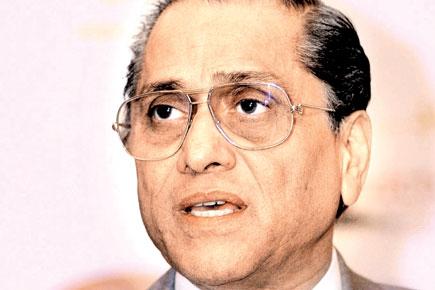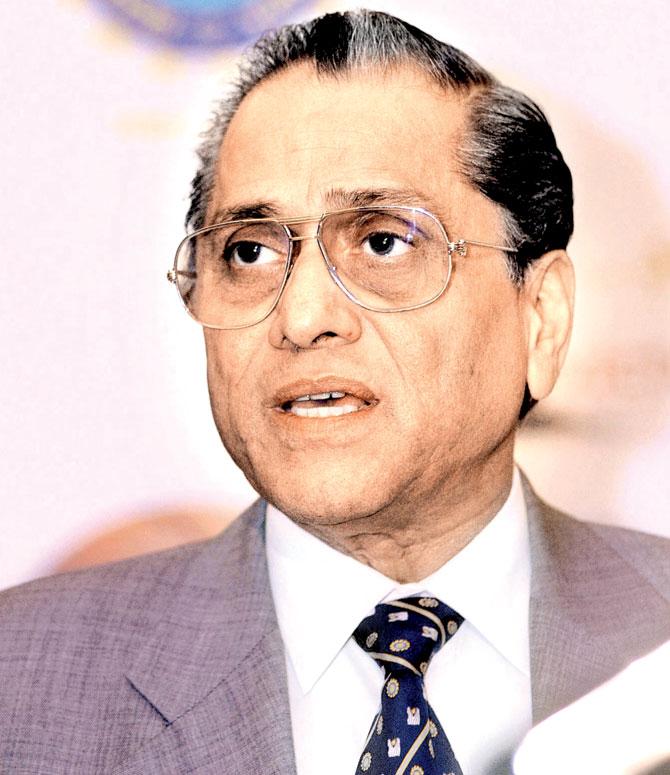Former ICC president can be credited for helping Indian cricket evolve from a sport into an industry; His biggest achievement? Possibly resisting the free sale of Hero Cup rights to Doordarshan in 1993

Jagmohan Dalmiya addresses a press conference in Kolkata in 2003
Kolkata: Jagmohan Dalmiya — ex-president of the International Cricket Council — could well be credited for having evolved Indian cricket from a sport into an industry.
Jagmohan Dalmiya addresses a press conference in Kolkata in 2003. Pic/AFP
ADVERTISEMENT
His biggest achievement? Possibly resisting the free sale of Hero Cup rights to Doordarshan in 1993. Dalmiya fought his point in court, paving the way for the BCCI to market TV rights for cash, probably the single biggest development in Indian sport in decades.
"In retrospect," he once told me, "if it had not been for our taking on the government in 1993, the World Cup 1996 would never have happened in India, we would have never made a profit more than the British made in the 1999 World Cup and, more importantly, we would have never been able to create the foundation that has enabled India to emerge as the undisputed capital of cricket of the world."
Plain slogging had a lot to do with it as well. The Dalmiya machine worked 12x364. "I got only three Sundays off in 2002," Kunal Kanti Ghosh, his executive assistant, told me a year ago, "and that was because he was travelling. "Incidentally, he worked on those Sundays while he was abroad."
Dalmiya may have been able to argue international strategy when he was chief of the International Cricket Council, but at the end of the day he would still be able to know the coach of the Bengal under-17 Bengal team by his first name.
Strategic policy maker
Dalmiya may have been a strategic policy maker, but he could juggle a number of figures in his head as he did during one weekend's inspired idling when he single-handedly scrawled out the 1996 World Cup itinerary with no computer, hazaar variables, 14 teams, 24 locations and 37 playing days.
He combined charm, hilarious English (he prefixed every one's first name with 'the') and Marwari canniness to pick up the phone and talk to Ali Bacher and organise South Africa's return to international sport in the short space of just seven days in November 1991 – no going through the PM or protocol.
Truly special
This man was special. He could organise two World Cups out of his office, create India's biggest leather complex, evolve the Eden Gardens from a wood and brick bowl into an international showpiece, transform a losing Cricket Association of Bengal into the most liquid sports organisation in India and still have time to tell the BBC that, "I am surprised how your race of people kept a country like India captive for nearly 200 years."
The biggest tribute ever paid to him? When Buddhadeb Bhattacharya was told that Dalmiya — who had a significant stake in Kolkata's leather and IT infrastructure — had lost the 2005
BCCI elections, the CM is supposed to have replied, "Thank God".
 Subscribe today by clicking the link and stay updated with the latest news!" Click here!
Subscribe today by clicking the link and stay updated with the latest news!" Click here!






